The Dictatorship
Trump’s push to make Canada the 51st state could backfire on Republicans
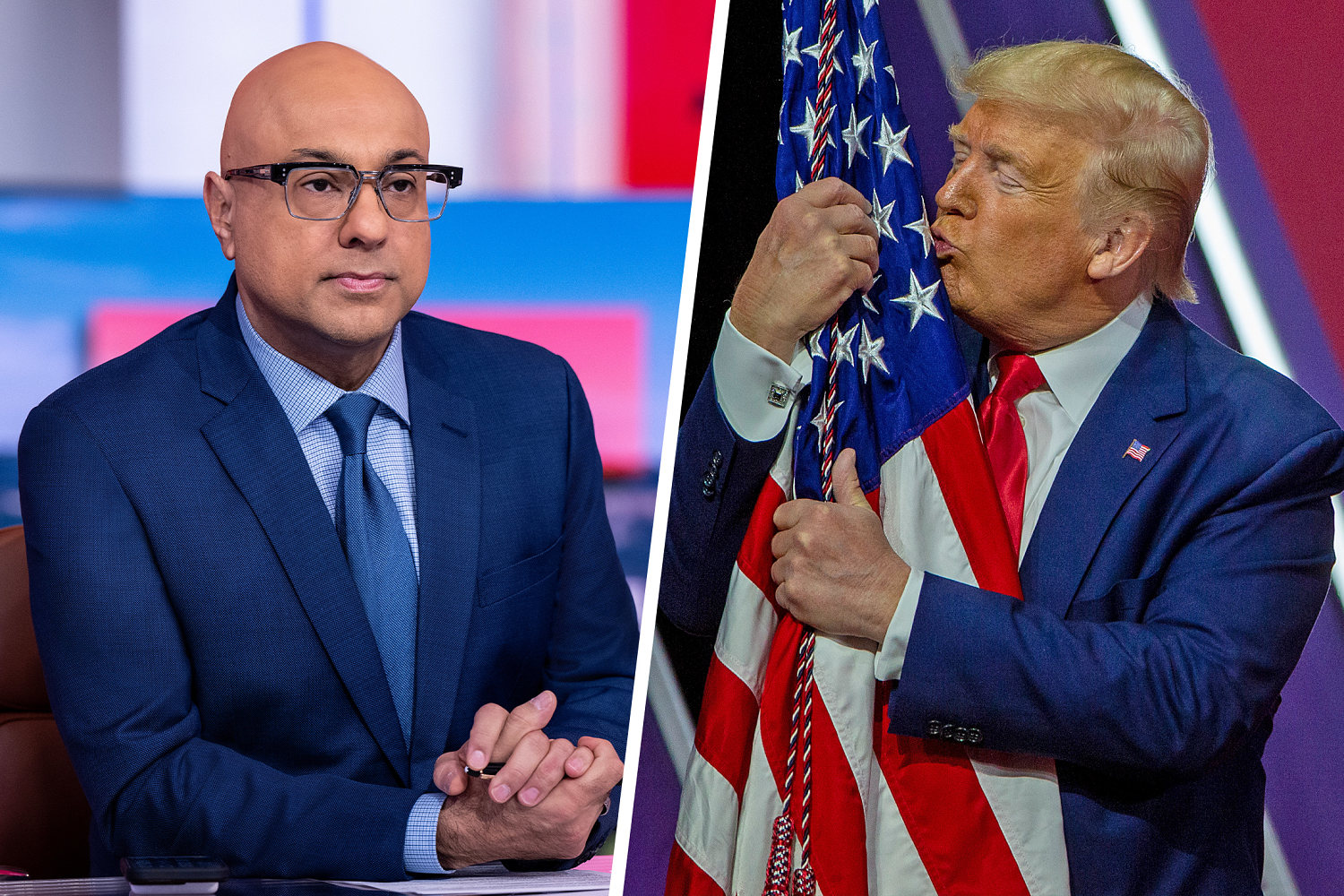
This is an adapted excerpt from the Feb. 9 episode of “Velshi.”
Since entering office, President Donald Trump has been ambitious about territorial expansion. Sounding more like Donald the Conqueror, he’s insisted the United States take ownership of the Gaza Strip and the Panama Canal, he’s proposed buying Greenland from Denmark and he’s pitched Canada on joining our union as the 51st state. At his inauguration, Trump took America’s original expansionist slogan and blasted it skyward, “We will pursue our manifest destiny into the stars, launching American astronauts to plant the Stars and Stripes on the planet Mars.”
If Canada were to become part of America, some changes would be in order.
American history has seen the country grow in size and Betsy Ross’ flag grow in stars but Trump’s ideas ebb between delusions of grandeur and old-fashioned gunboat diplomacy.
There was Trump’s announcement that the United States would “own” Gaza, sending Palestinians to neighboring countries and establishing a “Middle East riviera.” With literally zero specifics laid out by the White House as to how exactly this would happen, this idea has received bipartisan and international condemnation as logistically impossible.
Trump has also set his sights on “seizing back” the Panama Canal, which was signed over to Panama by the late President Jimmy Carter in 1977. Trump has erroneously claimed that China is running the canal, which is actually operated by an independent authority in Panama. A subsidiary of a Hong Kong company runs two of the canal’s ports but doesn’t control access to the canal.
Trump has also floated the idea of purchasing Greenland from Denmark, a concept that, while not new in the grand scheme of American history, stands firmly against the interests of the people of Greenland, whose prime minister has said bluntly, “We want to be Greenlanders.”
Then there’s Canada, the second-largest country by land mass on the planet. It’s also my home country. While I can’t speak for Panamanians or Greenlanders, I do have a suggestion for my fellow Canucks on this:
Trump has offered Canada the chance to become the 51st state, but I say, why stop there? Canada has 41 million people, spread throughout 10 provinces and three territories. So, if Canada were to become part of America, some changes would be in order.
First of all, Congress would have to grow. That would mean Canada, as part of the new America, would net at least 54 seats in the House. For context, the 20 states with the smallest populations have just 46 House seats among them all.
But here’s problem No. 1: This little thing called the Permanent Apportionment Act of 1929. That act mandates that the House is no bigger than 435 members. So, if you did the math, combining Canada’s population with America’s and dividing it by 435, Canada would net 47 seats. Those seats would be taken away from states all over the country. Who’s going to tell voters that Trump gave their congressional representation to a guy in Saskatchewan?
That’s just the House of Representatives. What about the Senate? Trump is only offering for Canada to become one state with two senators. But Canadian provinces, like American states, compete with one another. They aren’t going to be interested in all snuggling up into one state.
Each province would have to be its own U.S. state. So Canada wouldn’t be the 51st state; it would be states 51 through 60, at the very least, meaning Canada would have 20 senators. It would be the largest reorientation of political power in America since women were given the right to vote in 1920.
Trump is specifically asking Canada to join as just one state for that reason. Statehood for Canada would likely swing power away from Republicans. That’s one of the reasons most Republicans have long opposed statehood for Puerto Rico and Washington, D.C. They assume both would become Democratic strongholds, increasing the Democrats’ control in Congress.
If the thought of a couple of senators from Puerto Rico representing people who are already American citizens scares Republicans, I wonder how 20 from the land of maple syrup, Mounties and “Anne of Green Gables” would go over?
Statehood for Canada would likely swing power away from Republicans.
While it’s difficult to compare American and Canadian politics directly, we have some sense of how Canadians, or what might come to be known as “Camericans,” might vote:
Canada has a multiparty parliamentary system but in 2003, the conservative parties united under one banner.Since then, the conservatives have received, on average, about 35% of the popular vote in each election. On average, the left-of-conservative parties have received a combined 63% of the popular vote.
Expansion from Canada to the Gulf of America might be a fun idea for Trump … until our nice neighbors up north kick his party oot of office and install a liberal supermajority. And we haven’t even talked about what this would do to the Supreme Court.
Of course, in typical Canadian politeness, Prime Minister Justin Trudeau said there’s “not a snowball’s chance in hell” that Canada joins America. But, Canada, if I were you, maybe the chance to take over your noisy neighbor from the inside isn’t the worst idea in the world.
Armand Manoukian and Allison Detzel contributed.

Ali Velshi is the host of “Velshi,” which airs Saturdays and Sundays on BLN. He has been awarded the National Headliner Award for Business & Consumer Reporting for “How the Wheels Came Off,” a special on the near collapse of the American auto industry. His work on disabled workers and Chicago’s red-light camera scandal in 2016 earned him two News and Documentary Emmy Award nominations, adding to a nomination in 2010 for his terrorism coverage.
The Dictatorship
Charlie Kirk and the stubborn challenges with security measures

Much has been made of the fact that only six uniformed officers and a few plainclothes officers were at the Utah Valley University event the day Charlie Kirk was fatally shot while speaking to a crowd on campus.
But in truth, doubling or even tripling that number would not have made a difference. Ticket checks and metal detectors can screen attendees in the immediate area, but they cannot defend against a sniper on a rooftop 175 yards away. Preventing that type of attack requires a countersniper team with specialized training and substantial resources. And even then, success is not guaranteed. The July 13, 2024, assassination attempt on Donald Trump demonstrated this reality: Despite the full capabilities of the Secret Service, the shooter still came within inches of a fatal shot.
Ticket checks and metal detectors can screen attendees in the immediate area, but they cannot defend against a sniper on a rooftop 175 yards away.
With more than 35 years as an FBI agent, a U.S. Marine, and now a security consultant, I can affirm that securing an outdoor event like the one where Kirk was killed is among the most difficult challenges in the field. A speaker positioned in low ground, surrounded by a large crowd and overlooked by two- to four-story buildings, creates vulnerabilities that no local police force can realistically control.
If Kirk had been my client, I would have wanted exactly that level of specialized team. But the cost is often far beyond what any private citizen or even many companies can afford. A more practical measure might have been a three-sided transparent ballistic panel capable of stopping a high-velocity rifle round like the .30-06 used in the attack on Kirk — which would not have provided total protection but could have offered a meaningful safeguard.
While we do not know the conversations or planning that went into this particular event, I have found in my years in the government and in consulting for high-risk security environments that clients themselves often reject such measures in the name of being approachable and standing among their supporters rather than behind visible barriers.
Effective security is always a balance between what works and what a client is willing to accept.
That tension is equally visible on the business side of security. For those critical of the security presence at the Utah Valley University event, it is important to understand that protection is expensive and produces no revenue, the critical consideration for most businesses. Its value is difficult to measure, as success often means nothing happens. How do you prove the success of an incident that was deterred?

Because of this, the field tends to operate in cycles. After a high-profile attack, interest surges. Calls come in with urgent requests. At first, money is said to be no object. A team is assembled quickly with travel, logistics and personnel costs reflecting the short notice, and a quote is provided. At that point, priorities often shift. Suddenly, budgets matter, and within days, as the sense of danger fades, the plan is abandoned. We found this to be the case in the aftermath of the targeted killing of UnitedHealthcare CEO Brian Thompsonwhen many major companies clamored to hire security details for their leaders. That trend did not last. Too often, when confronted with the true cost of adequate protection, people settle for minimal coverage, such as a single driver with no advanced training, convincing themselves they have security now that the immediate threat appears to have faded.
Real security is neither simple nor convenient. It requires discipline like varying daily routes and schedules at random. It requires accepting protective measures that may not look appealing, such as ballistic panels or restricted access. And it requires trusting the expertise of trained professionals, even when their recommendations conflict with comfort or image. These are the trade-offs that genuinely protect lives.
We remain caught in the cycle of responding after tragedies rather than preventing them.
Kirk appeared on Wednesday in one of the most difficult environments to secure — outdoor college campuses. His team appeared to be better equipped for crowd management than dealing with a sniper threat. As is the case with nearly all deadly attacks, there was no way to perceive the particular nature of the threat he faced that day. The suspect, just 22 years old, most likely had little training, yet he is believed to have been able to not only plan and carry out the attack, but then escape afterward. That reality is sobering.
It is a horrifying reminder of how political violence in the United States is not receding; it is intensifying. Each successful incident not only causes immediate harm but also teaches future attackers what methods may succeed.
The hard truth is that no plan can guard against every possible threat. But security can be approached more seriously, with an understanding that its costs and inconveniences are investments (necessary ones, at that), not luxuries. When we fail to acknowledge that reality, we remain caught in the cycle of responding after tragedies rather than preventing them.
Robert D’Amico
Rob D’Amico is a global security and intelligence executive with over 35 years of experience leading protective operations, counterterrorism missions, and enterprise security strategy across government and private sectors. As the former FBI deputy chief of operations for the hostage rescue team and chief of counter-unmanned aircraft systems, he directed high-risk global missions, executive protection, and major event security, including the Super Bowl and World Series. As a former chief security officer and current consultant to Fortune 500 firms, he is recognized for building resilient security programs that protect people, assets, and critical infrastructure worldwide.
The Dictatorship
Americans who push back against Trump are winning
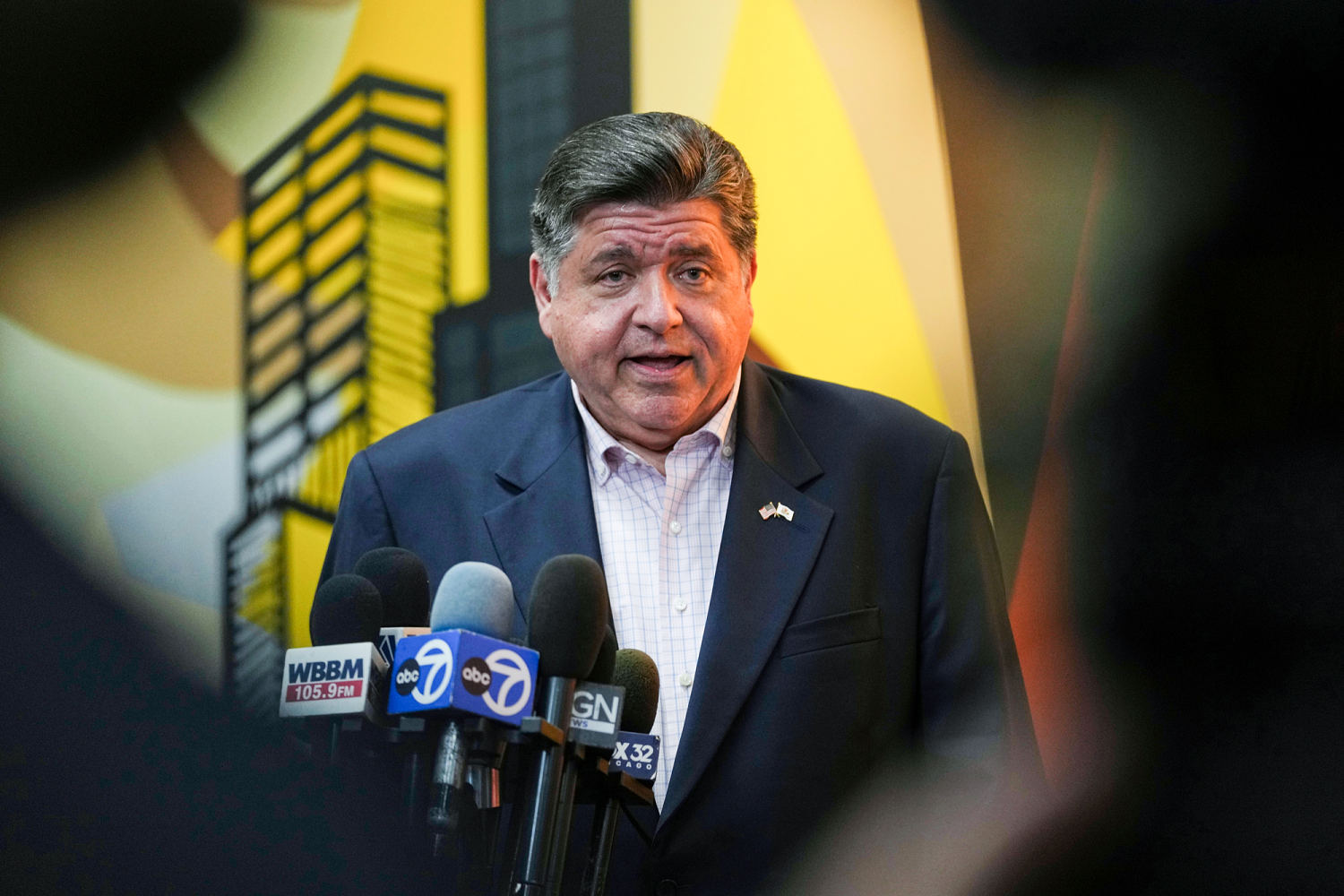
President Donald Trump’s second term has been built on a series of bluffs: Act like you have a power and some people may end up giving it to you. From gutting federal agencies to threatening law firms’ security clearances, he has expanded the imperial presidency by persuading his targets to give up.
But lately a number of prominent Americans have fought back against Trump — and won.
When Trump tried to fire Federal Reserve Board of Governors member Lisa Cook, she sued, and a federal judge allowed her to stay on the job until her case is heard at length. When he announced plans to send the National Guard into Chicago, Illinois Gov. JB Pritzker and Mayor Brandon Johnson stood shoulder to shoulder against it, and he started talking about going to Memphis instead. And when he tried to strip Harvard University of funding, it sued and won.
If you do not fight, you have already lost.
These leaders understand a truth that bears repeating: If you do not fight, you have already lost. If you do, you might preserve the law, the principle or the community under siege.
That is the choice now before Congress as another government shutdown deadline looms. Trump has announced he will not even meet with Democrats. Instead, Republican leaders have been dispatched to deliver his ultimatums: funding on his terms, with nothing offered in return. Democrats have not yet decided whether they will supply the necessary votes that keep the government open.
But this is not merely a negotiation over appropriations; it is a test of political courage. If Democrats surrender out of fear that they will be blamed for a shutdown, they will have handed Trump precisely the victory he seeks without forcing him to expend any political capital.
History makes plain what happens when leaders grow weary and turn away. After the Civil War, federal troops withdrew from the South in 1877ending Reconstruction and abandoning Black Americans to nearly a century of racial terror and disenfranchisement. That surrender to fatigue and compromise cost generations their rights. Trump is gambling that America will also grow weary of fighting and give up.
Yet history also records what is possible when leaders resist. Abolitionists refused to yield when presidents counseled patience and compromise; their persistence made emancipation a moral inevitability. Radical Republicans in Congress defied President Andrew Johnson’s attempts to restore white supremacy. They overrode his vetoes, passed the Reconstruction Acts and impeached him for abuse of power. More than a century later, lawmakers pressed the Watergate investigation forward even as Richard Nixon threatened a constitutional crisis. Their determination forced the release of the White House tapes and ended his presidency.
From abolition to Reconstruction to Watergate, progress came not from passivity but from sustained struggle against leaders who abused their office.
That is the tradition Lisa Cook joined when she refused to be silenced. It is the tradition Harvard and George Washington University reaffirmed when they refused to bend. It is the tradition of Pritzker, Johnson, California Gov. Gavin NewsomMaryland Gov. Wes Moore and Baltimore Mayor Brandon Scottwho proved that governors and mayors can still defend their cities from overreach. And it is the tradition that Congress must reclaim if it hopes to preserve its role as a co-equal branch of government.

The struggle is tiring. That is its purpose. Trump thrives on fatigue, assuming that if he presses long enough, the opposition will collapse. But his power is not inevitable. It is fragile, and every time it is confronted, it is diminished.
The only way to defeat Trump’s assault on democracy is to fight. The fight itself is the safeguard of our republic. And if we are willing to engage it — in the courts, in the halls of Congress, in statehouses and city halls across the country — history suggests that we can not only endure, but also prevail.
For more thought-provoking insights from Michael Steele, Alicia Menendez and Symone Sanders-Townsend, watch “The Weeknight” every Monday-Friday at 7 p.m. ET on BLN.
Symone D. Sanders Townsend is an author and a co-host of “The Weeknight,” which airs Monday through Friday at 7 p.m. ET on BLN. She is a former deputy assistant to President Joe Biden and a former senior adviser to and chief spokesperson for Vice President Kamala Harris.
The Dictatorship
‘Disturbing’: BLN hosts rip Fox anchor for shocking call to ‘just kill’ homeless people


-
Now Playing

-
UP NEXT

The “Gazafication” of the West Bank and the façade of a two-state solution
06:51
-
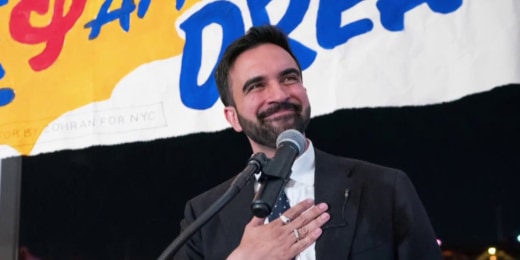
NY Gov. Katchy
07:57
-
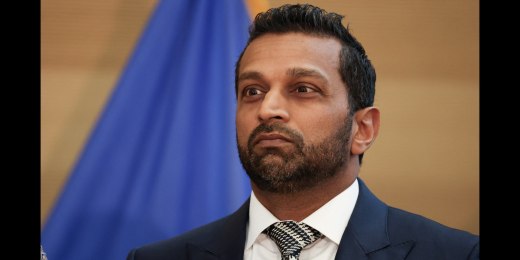
‘Not a serious person’: Fmr. FBI official SLAMS Kash Patel’s leadership
09:23
-
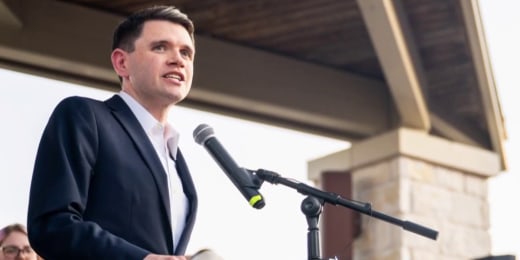
“This is a time for courage”: TX State Rep. James Talarico on bridging divides in politics
07:43
-
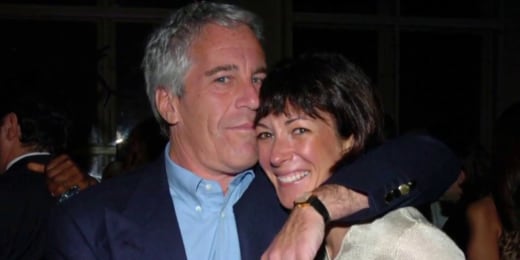
‘Culture of enabling’: Survivor speaks out on Epstein’s birthday book, demands transparency
10:30
-

Former Secret Service Agent warns Kirk assassination signals new targets of political violence
08:17
-

Dem fights for expanding IVF amid Trump assault on reproductive rights
06:55
-
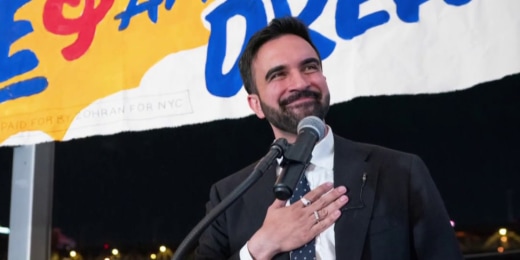
‘Bless Cuomo’s heart.’ Fmr. Rep. Jamaal Bowman, Leigh McGowan mock Andrew Cuomo’s attacks on Zohran Mamdani
09:33
-

‘Harbinger of what’s to come’: Tensions boil after ICE agent kills father near Chicago
09:37
-
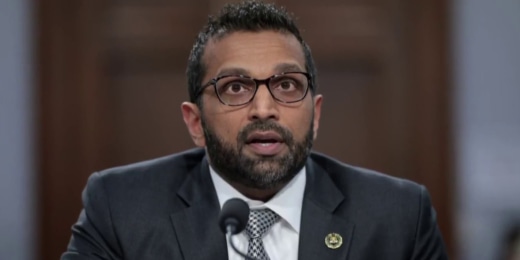
‘Double standard of justice’: Top Dem demands transparency ahead of Kash Patel hearing
08:10
-

Trump Memphis takeover would undermine ‘freedom’ & ‘American norms’: Tennessee mayor
07:48
-

ICE agent fatally shot man who dragged him with his vehicle, DHS says
10:47
-

Comedian: ‘Laura Loomer as the de facto Defense Secretary makes me feel as safe as Ghislaine Maxwell as a baby sitter”
10:33
-
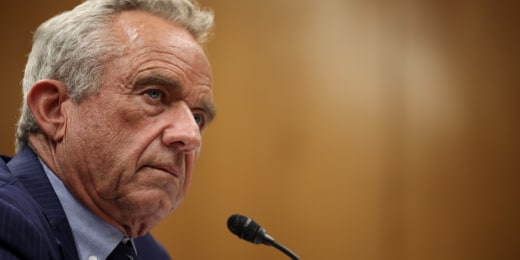
‘Vaccination is a form of kindness’: Mom of immunocompromised child slams RFK Jr’s anti-vaccine agenda
05:34
-

‘Highly likely’ Congress obtains Epstein birthday book
09:30
-

Rep. Moulton: Trump Gave No Warning Before Venezuela Boat Strike
07:10
-

CNBC Reporter: Trump’s economy problem is threatening his entire agenda
10:18
-
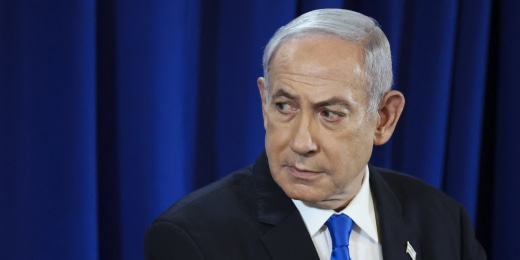
A Dem Senate candidate was asked if she’d meet with Benjamin Netanyahu. She had a one-word answer.
07:36
-

Gaza bombings & West Bank annexation: Netanyahu to face U.N, as U.S. backs Him
09:28
The Weekend: Primetime
-
Now Playing

‘Disturbing’: BLN hosts rip Fox anchor for shocking call to ‘just kill’ homeless people
04:20
-
UP NEXT

The “Gazafication” of the West Bank and the façade of a two-state solution
06:51
-

NY Gov. Katchy
07:57
-

‘Not a serious person’: Fmr. FBI official SLAMS Kash Patel’s leadership
09:23
-

“This is a time for courage”: TX State Rep. James Talarico on bridging divides in politics
07:43
-

‘Culture of enabling’: Survivor speaks out on Epstein’s birthday book, demands transparency
10:30
-
Uncategorized10 months ago
Bob Good to step down as Freedom Caucus chair this week
-

 The Josh Fourrier Show10 months ago
The Josh Fourrier Show10 months agoDOOMSDAY: Trump won, now what?
-

 Politics7 months ago
Politics7 months agoFormer ‘Squad’ members launching ‘Bowman and Bush’ YouTube show
-

 Politics10 months ago
Politics10 months agoWhat 7 political experts will be watching at Tuesday’s debate
-

 Politics10 months ago
Politics10 months agoHow Republicans could foil Harris’ Supreme Court plans if she’s elected
-

 The Dictatorship7 months ago
The Dictatorship7 months agoPete Hegseth’s tenure at the Pentagon goes from bad to worse
-

 The Dictatorship7 months ago
The Dictatorship7 months agoLuigi Mangione acknowledges public support in first official statement since arrest
-
Economy10 months ago
Fed moves to protect weakening job market with bold rate cut






